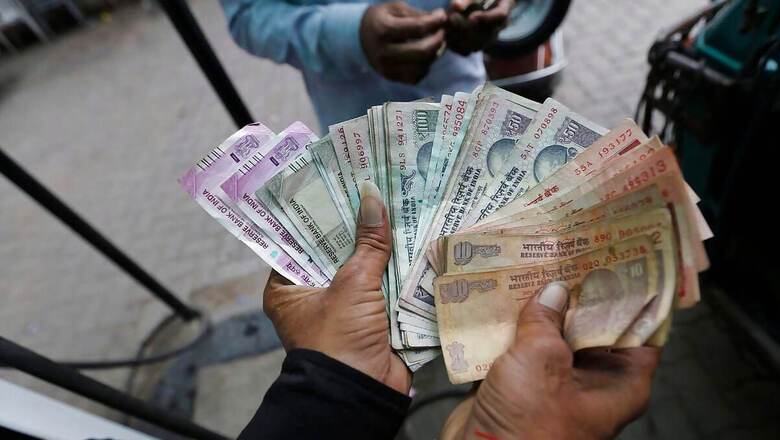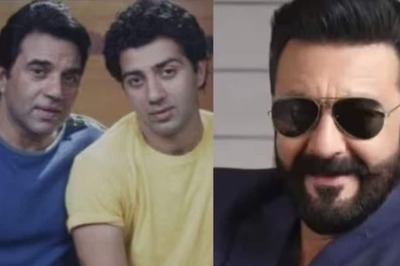
views
The Foundation for Democratic Reforms, one of India’s leading think tanks, is organising a roundtable conference on improving public finances and discussing measures to address the pressing fiscal issues facing the country.
The National roundtable titled, ‘A Viable Framework for Fiscal Prudence,’ will be organised on November 4 at the India International Centre, New Delhi.
“We must pay attention to where our tax money is going. If we ignore this, those who are clever, those who are organised, vocal, and powerful will take away all our money for their benefit,” Dr Jayaprakash Narayan, founder of FDR said.
Narayan was earlier instrumental in driving three constitutional amendments and over 15 legislative Acts in India, including the Lokpal Act and the Right to Information Act.
PUBLIC FINANCE EXPERTS TO PARTICIPATE
The meeting will see the participation of politicians, former civil servants, academicians, civil society leaders and senior journalists deliberating and arriving at a consensus on concrete measures to address fiscal challenges.
The participants of the roundtable include Yashwant Sinha, former Finance Minister, Montek Singh Ahluwalia, former Deputy Chairman of the Planning Commission, Suresh Prabhu and Manish Tiwari, former Union Ministers, Ashok Lavasa and TS Krishnamurthy, former CECs, Prithviraj Chauhan, former Maharashtra CM, Dr M Govinda Rao, Member of 14th Finance Commission and Dr Ajay Shah, Senior Research Fellow and Co-founder, XKDR Forum.
EXPENSES AND CHALLENGES
The misallocation of public money, which comes to the government in the form of taxes paid by citizens and borrowings, has been a matter of grave concern. Rather than being utilised to create collective goods and services or to safeguard the future of future generations, a big chunk of the government spending is spent in a way to suit politics.
One such major challenge has been political parties offering extraordinary post-retirement benefits to government employees in the name of what is called ‘Old Pension Scheme’ (OPS). The spending on the scheme is huge and impossible to sustain in the long run.
OLD PENSION SCHEME – MOUNTING AND IMPOSSIBLE EXPENSES
As per the OPS, 18 per cent of what the government collects as revenues and taxes is spent on pensions for government employees, who constitute a mere 3.2 per cent of the workforce.
What’s more worrying is that “the amount is increasing dramatically and from 18 per cent, it is going to be 50 per cent, 70 per cent, even 100 per cent of government revenues in the years to come. There is going to be nothing left for the people of India, for the government to carry out its main tasks,” Dr Jayaprakash Narayan warned.
The exponential growth of the pension burden over time is because OPS benefits are linked to salary hikes that the current employees get and also price increases.
HOW OPS MAKES FUTURE BLEAK
Experts point out that the OPS kind of pension system has made countries like Greece and Italy go bankrupt.
The pension system burdens the economy in a way that when the pension liability on the government begins to mount, they will be forced to borrow beyond their capacity, going into a debt spiral. Then the government lose their fiscal credibility and borrowing becomes costlier, with a higher interest burden.
When government has to pay large amounts in unproductive bills, there will be no public investment. Therefore, the economic growth and rise in incomes are hampered. The incomes stagnate, and, as a result, government revenues fall, pushing the country into a deeper economic crisis.
The central government will then be forced to impose a Financial Emergency before such a dire situation arises. That means extreme austerity measures to bail the country out of debt.
“If the OPS continues, there’ll be no money left with the government in future even to pay salaries. Nor even pensions. The country is going to be destroyed. Finally, no one is going to gain,” Dr Narayan said.
It is a well-known fact that the finances of the state governments are in a perilous state and most states are borrowing beyond the recommended levels. The RBI, in a January-2023 report on states’ fiscal performance, advised states not to adopt the OPS.
ALTERNATIVES TO OPS
Earlier, the Atal Bihari Vajpayee government and then the Manmohan Singh government came up with a ‘National Pension System’ (NPS)- a funded, contributory pension, where the money is put away in a markets-linked pension fund. Due to the NPS, the burden on the government is much less and tax money is available for development work.
OPS, on the other hand, does not need contributions from employees and is entirely paid by the government. It is linked to salary hikes of serving employees and not subject to taxation. For government employees, this is the more generous and stable option, free from market volatility.
All states saw sense in the NPS and had adopted it, except for West Bengal. Recently, some state governments and political parties have had a rethink: five states have gone back to OPS and political parties are offering it as election promises and implementing it if they win.
Without fully understanding implications, government employees have also held protests in places for its reinstatement.
ARRIVING AT ACCEPTABLE SOLUTION
On one hand, there is the post-retirement security of government employees, who’ve served the country for years and on the other hand, there is the remaining 97 percent of people that need to be protected.
For this, a workable system that ensures fiscal prudence has to be put into place. One that will be politically acceptable, but also pragmatic and sustainable. Arriving at an acceptable solution will be the precise agenda of the Roundtable.



















Comments
0 comment